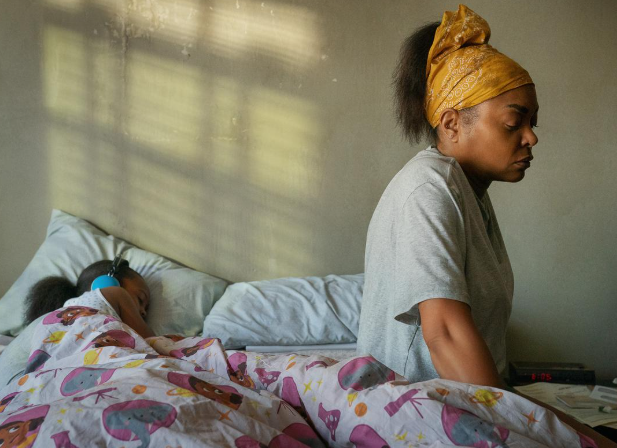The Thousand Little Things
A Mother’s Mental Load, A Moment of Grace, and the Mission That Sparks Change
“People don't know how expensive it is to be poor.”
— Tyler Perry’s Straw
That line cuts deep. It reminds us that motherhood isn’t just about love and sacrifice—it’s about navigating a world that often undervalues and misunderstands the hidden costs.
Motherhood doesn’t break you with one blow—it breaks you with a thousand overlooked burdens and one final straw.
The mental load.
The decisions.
The hormone-fueled highs and lows.
The guilt of never doing enough.
We memorize meal plans, vet appointments, emergency contacts, childcare drop-offs, and every possible “what if.” And when the fridge empties, the check bounces, or the baby cries, every thought pounds through us all at once.
That’s what Straw captures—our private collapse.
I lived it in real life at Meijer:
A mother, overwhelmed, clutched her screaming, hungry infant while trying to push a packed cart. No one stopped—until I did.
I knelt beside her and said,
“Please, go feed your baby. I’ll stay with your cart.”
She hesitated.
“But…I have to feed her,” she said.
I met her gaze.
“It’s okay. We’ll be right here when you come back.”
Fifteen minutes later, she returned—baby calm, tears in her eyes—and whispered,
“That is the nicest thing anyone has ever done for me.”
That’s when I realized empathy isn’t passive. It’s action. It’s grace. It’s seeing someone carrying the world and saying, “Let me help.”
The emotional toll on mothers—single, partnered, working, stay-at-home, or doing it all—is often compounded by financial pressure. As Straw declares, “People don't know how expensive it is to be poor.”
We’re forced to juggle mistaken assumptions, hidden expenses, mounting expectations—and even the simple act of caring for our children becomes a luxury.
But here's what matters:
Grace must come before judgment.
Help must arrive before exhaustion.
Empathy must replace apathy.
At KindNest, our mission is simple: see the unseen burden, hold the cart when needed, and remind every mother—you are not alone.
Even if the likes plateau, the blog quiets down, or donations stall—I keep going. Because compassion is never wasted. One simple, human act—holding the cart, offering a moment—can tip the scale from despair to hope.
A mother isn’t broken from weakness—she’s stretched from strength.
So let this be your invitation: the next time you see a mom struggling, step up and say, “Go take care of your baby. I’ve got this cart.”
Because some days, that’s all the world needs to begin to change.


